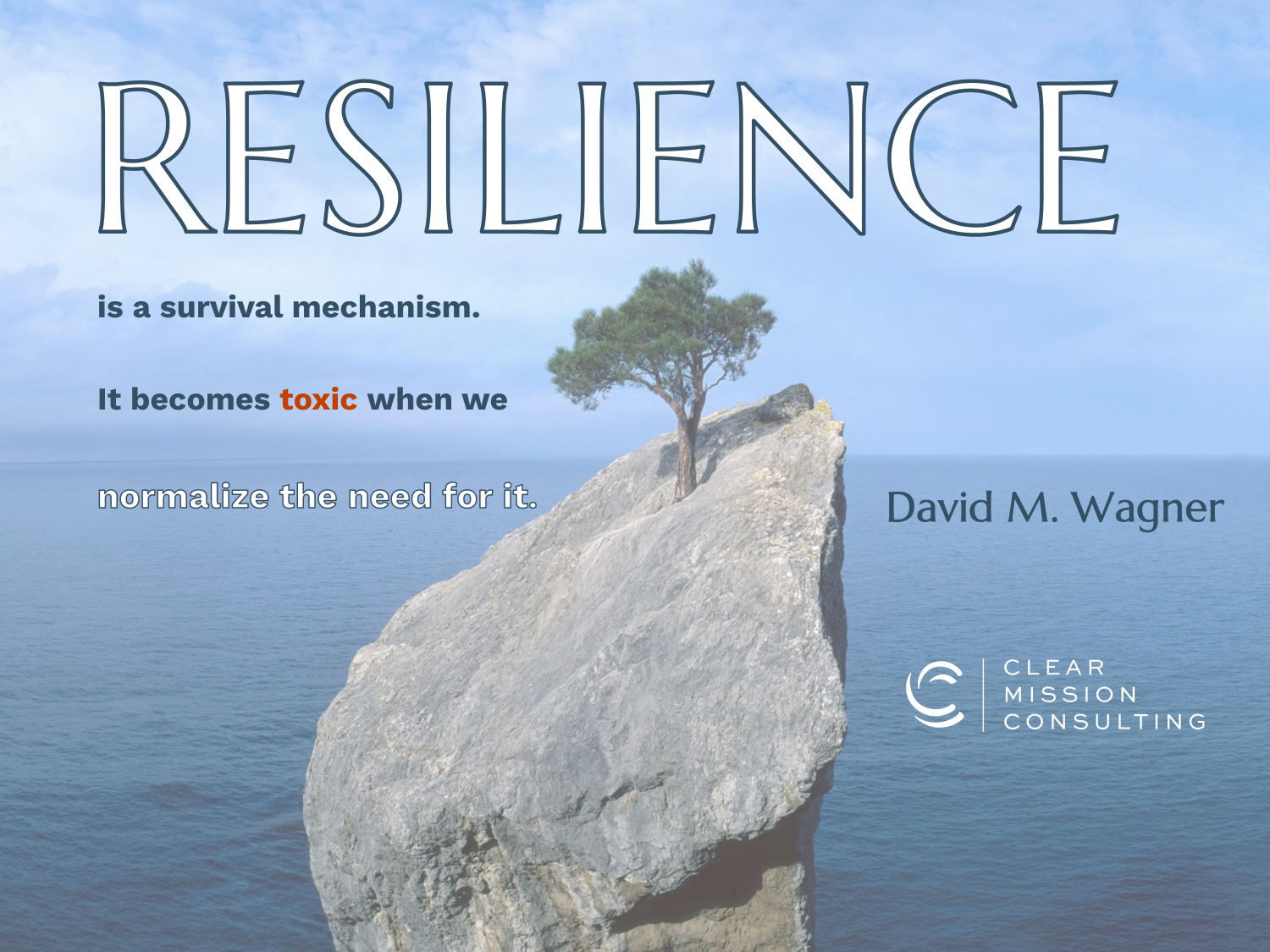When does Resilience become Toxic?
October 17, 2024 | By David M. Wagner
We love resilience.
We celebrate stories of teams that persevere against the odds, of underdogs who rise up over seemingly insurmountable challenges.
We take pride in our capacity to keep going even when we’re worn out and worn down.
Which is why it was so startling to hear Donna Murray-Brown drop the phrase “toxic resilience” during her keynote at the New Hampshire Nonprofit Leadership Summit.
What could make such a seemingly positive trait become “toxic?”
Unfair Expectations
In Donna’s words, it is unfair to expect us to thrive when we’re always in crisis mode.
Her illustration was the way expectations for nonprofits changed after COVID.
Many organizations, and the staff who work and volunteer there, demonstrated tremendous grit and resolve to deliver their missions despite (or in response to) the pandemic.
It was a crisis that demanded individual and collective sacrifices to meet our communities’ needs.
But how many of us are still operating in crisis mode? Or are expected to show the same resilience in the face of every new dilemma (even ones our stakeholders create for us)?
Resetting the Expectations
In other words, resilience becomes toxic when we normalize the need for it.
Resilience is a survival mechanism. Like stress, it can help you handle short periods of difficulty.
And the longer you must endure a crisis (or several), the bigger impact on your mental and physical health.
Is toxic resilience taking a toll on you or your team?
Here are some questions to ask yourself.
Have you (or your stakeholders) come to expect that you can handle every crisis that comes your way? In other words, has resilience become the norm, rather than the exception?
What dilemmas do you find yourself battling continually or repeatedly? And where are those difficulties coming from? Are stakeholders putting unfair loads on your plate because they believe you can “handle it?”
What impact are those ongoing challenges having on your ability to serve your mission? Exhaustion, perhaps? In her keynote, Donna apologized for bringing up the pandemic – because she, herself, was so tired of hearing about it.
What is one crisis you might be holding onto that you could choose not to endure anymore? Could you be contributing to unfair expectations for your resilience by “coming to the rescue” each time something goes wrong? What would be the upsides and downsides of letting something drop on the floor?
What would need to change for you to thrive in your mission? What could you do, or ask someone else to do, to get on solid ground instead of struggling in survival mode?
Resilience may be a necessary crisis response – but it is not a sustainable state. Reset expectations so that enduring crises is an exception, not the norm.
Your mission needs you and your team to be at your best. If you’re struggling under the weight of continuous crisis, I can help you find a way back to thriving. Set a free consultation to discuss how.


